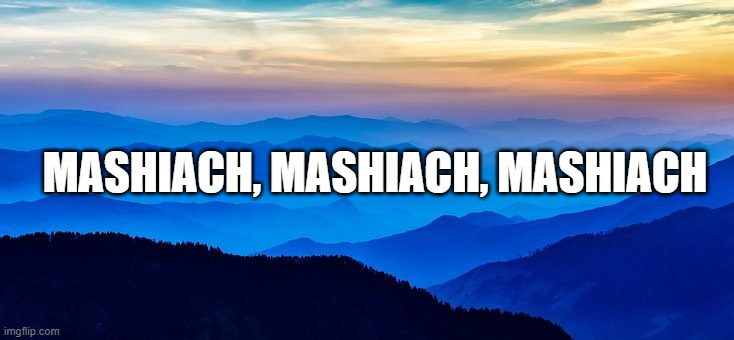Aliyah as an Integral Part of the Messianic Process
by Jason Lipstein (Mr. Lipstein’s essays appear on many Jewish websites)

Aliyah, the act of Jews returning to the land of Israel, is considered by many to be an integral part of the Messianic process. This belief is rooted in various scriptural passages and rabbinic teachings that highlight the significance of the Jewish people’s connection to their ancestral homeland.
In the Tanach, we find numerous prophecies that speak of the return of the Jewish people to the land of Israel. For example, in the book of Isaiah (11:12), it is written, “He will raise a banner for the nations and gather the exiles of Israel; he will assemble the scattered people of Judah from the four quarters of the earth.” This verse emphasizes the ingathering of the exiles as a key aspect of the Messianic era.
Additionally, the book of Jeremiah (31:8-9) states, “Behold, I will bring them from the north country and gather them from the ends of the earth, among them the blind and the lame, the woman with child and she who labors with child together; a great assembly shall return there. They shall come with weeping, and with supplications I will lead them. I will cause them to walk by the rivers of waters, in a straight way in which they shall not stumble; for I am a Father to Israel, and Ephraim is My firstborn.” These verses depict a powerful image of the Jewish people returning to their homeland, overcoming obstacles and being led by God Himself.
In the Talmud, we find discussions that further support the importance of Aliyah in the Messianic process. In Tractate Ketubot (111a), it is written, “Rabbi Yehoshua ben Levi said: The son of David will not come until the entire land of Israel is settled.” This teaching highlights the significance of the Jewish people’s settlement in the land as a prerequisite for the coming of Moshiach.
The return to the land of Israel is seen as a fulfillment of divine promises and a necessary step towards the ultimate redemption. It is believed that the physical presence of the Jewish people in their ancestral homeland is a crucial aspect of the Messianic era, as it represents the restoration of the Jewish nation and the reestablishment of Jewish sovereignty.
Aliyah is not only seen as a personal choice but also as a collective responsibility. It is believed that the return of Jews to the land of Israel contributes to the spiritual and physical revitalization of the Jewish people and the land itself. By actively participating in the process of Aliyah, individuals and communities play a role in bringing about the Messianic redemption.
It is important to note that while Aliyah is considered by many to be an integral part of the Messianic process, it is not the sole focus. The spiritual and ethical dimensions of the Messianic era, such as the universal redemption of all humanity and the establishment of peace and justice, are equally important.
As we await the arrival of Moshiach, it is essential to support and encourage Aliyah, recognizing its significance in the Messianic process. However, it is equally important to engage in acts of kindness, study Torah, and observe mitzvot, as these actions also contribute to the hastening of the redemption.
May we merit to witness the complete ingathering of the exiles and the arrival of Moshiach speedily in our days, when the Jewish people will be united in their ancestral homeland, and the world will be filled with peace and harmony.






